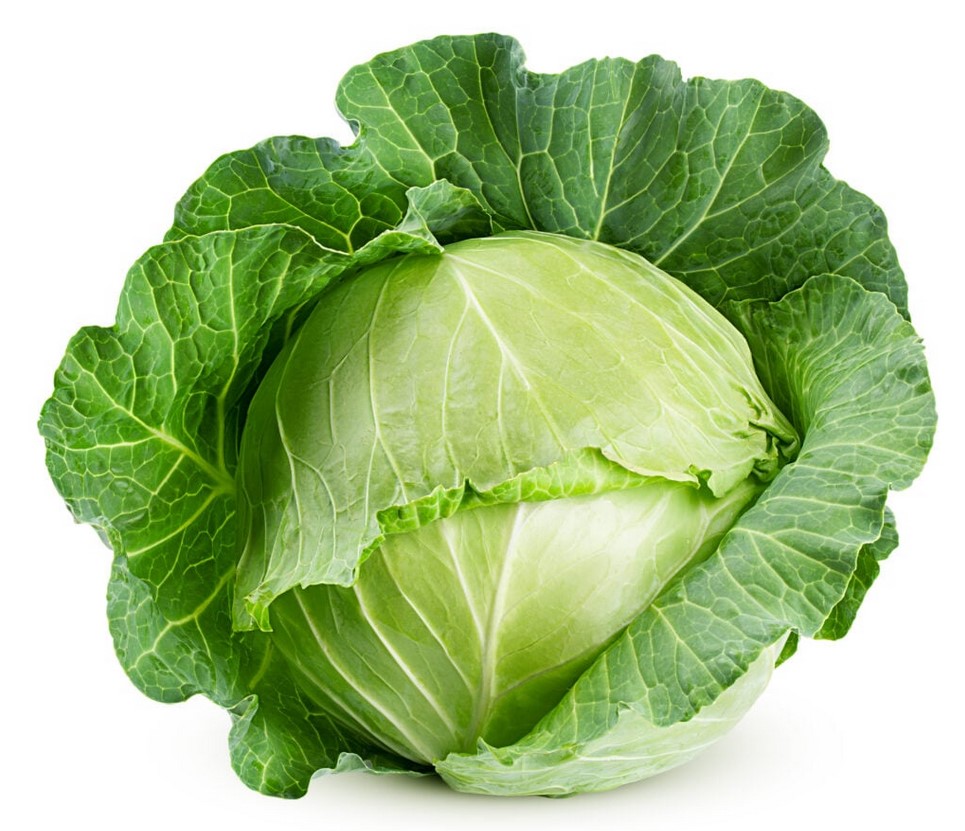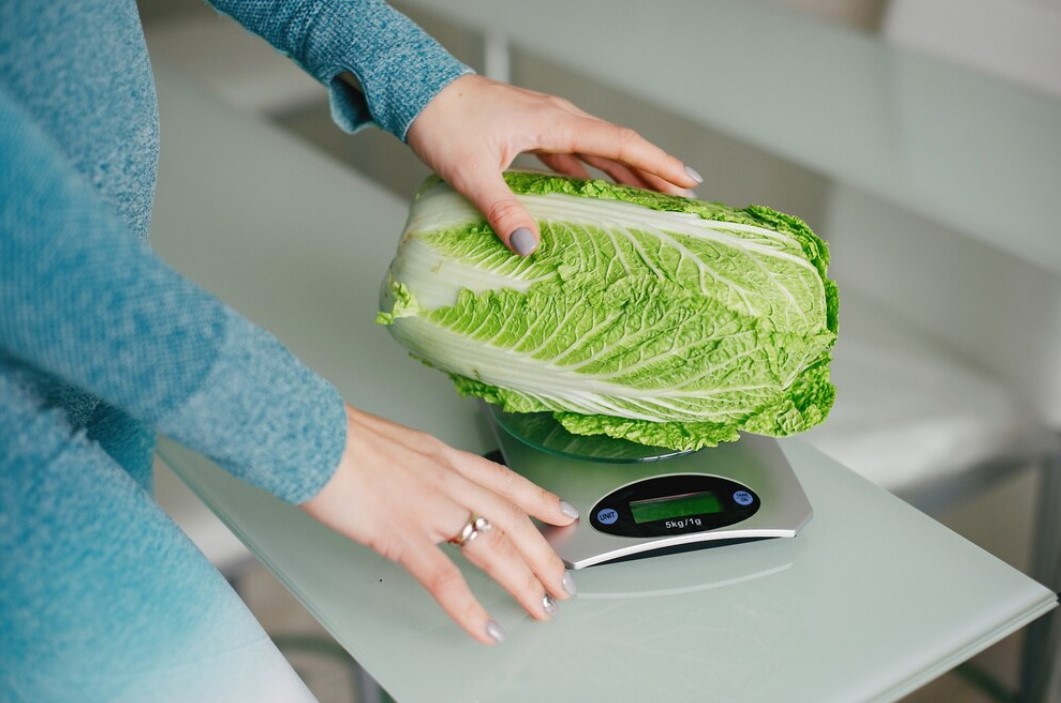Cabbage is a versatile, nutrient-packed vegetable that offers numerous health benefits, particularly for those managing diabetes. Known for its mild flavor and crisp texture, cabbage is an excellent addition to a diabetes-friendly diet. It’s low in calories and carbohydrates while being rich in essential nutrients like fiber, vitamins, and antioxidants.
One of the key benefits of cabbage is its ability to help stabilize blood sugar levels. The high fiber content in cabbage slows down the absorption of glucose, preventing sharp spikes in blood sugar after meals. Additionally, cabbage contains antioxidants like vitamin C and beta-carotene, which help reduce inflammation and improve overall metabolic function, supporting better blood sugar regulation.
So, is cabbage good for diabetes? Let’s explore its benefits and practical uses. With its low glycemic index, high fiber content, and nutrient density, cabbage is a powerful food for managing blood sugar, supporting heart health, and improving digestion. Whether you enjoy it raw in salads, cooked in soups, or sautéed as a side dish, cabbage is a delicious and healthy addition to your diabetes management plan.
Overview of Cabbage
Cabbage is a leafy vegetable that belongs to the cruciferous family, along with other vegetables like broccoli, kale, and Brussels sprouts. It is typically round or oval in shape, with tightly packed leaves that can be green, purple, or white in color. Known for its slightly sweet yet mild flavor, cabbage is a versatile vegetable that can be eaten raw, steamed, sautéed, or even fermented into dishes like sauerkraut and kimchi.
Cabbage is not only delicious but also packed with essential nutrients. It is an excellent source of vitamin C, which supports the immune system, helps the body absorb iron, and promotes healthy skin. Vitamin K found in cabbage is crucial for blood clotting and bone health. The vegetable also provides a good amount of fiber, which aids digestion, supports healthy blood sugar levels, and promotes satiety, helping to control appetite.
In addition to vitamins, cabbage is rich in potassium, a mineral that helps regulate blood pressure, and calcium, which is vital for strong bones and teeth. Low in calories and carbohydrates, cabbage is an ideal food for those managing diabetes, providing essential nutrients without contributing to blood sugar spikes. Its fiber content also helps improve insulin sensitivity, making it a beneficial choice for people with diabetes.
Scientific Basis for Cabbage and Diabetes
Cabbage has become recognized as a beneficial vegetable for managing diabetes, thanks to its nutrient profile, which supports blood sugar control. While direct studies specifically linking cabbage to diabetes management are limited, research on its components—such as fiber, antioxidants, and phytonutrients—suggests it may play a role in glycemic regulation and improving overall metabolic health.
Fiber and Blood Sugar Control
One of the primary reasons cabbage can support blood sugar control is its high fiber content. A cup of raw cabbage contains about 2 grams of fiber, which helps slow the absorption of sugar into the bloodstream, thus preventing rapid spikes in blood glucose. Fiber is crucial in diabetes management because it enhances insulin sensitivity, allowing the body to use insulin more effectively. Research has shown that increasing fiber intake helps stabilize blood sugar levels and improves overall glycemic control. Soluble fiber, in particular, forms a gel-like substance in the gut that slows digestion and the release of glucose.
Antioxidants and Phytonutrients
Cabbage is rich in antioxidants, such as vitamin C, beta-carotene, and flavonoids, which help combat oxidative stress and inflammation—both of which are common contributors to insulin resistance and diabetes complications. Inflammation can impair insulin function, leading to higher blood sugar levels. The antioxidants in cabbage help neutralize free radicals, reducing oxidative stress, and enhancing insulin sensitivity. Additionally, cabbage contains phytonutrients like glucosinolates, which have been shown to reduce inflammation and improve metabolic health. These compounds can also help protect against long-term complications associated with diabetes, including heart disease.
Low Glycemic Index and Nutrient Density
Cabbage has a low glycemic index (GI), meaning it has a minimal impact on blood sugar levels when consumed. Low-GI foods are digested slowly, providing a steady release of glucose into the bloodstream and helping to avoid insulin spikes. This makes cabbage a great option for individuals with diabetes. Additionally, cabbage is nutrient-dense, providing essential vitamins like vitamin K, vitamin C, potassium, and calcium, while being low in calories and carbohydrates, making it an excellent choice for individuals looking to maintain a healthy weight and manage blood sugar levels effectively.
Limitations and Need for Further Studies
While the individual components of cabbage—fiber, antioxidants, and low glycemic index—have been extensively studied for their effects on blood sugar regulation, there is limited research directly investigating cabbage’s impact on diabetes specifically. Most of the evidence supporting cabbage’s role in blood sugar control comes from studies on cruciferous vegetables in general rather than from studies on cabbage alone. More targeted research is needed to definitively link cabbage consumption with improved diabetes outcomes.
In conclusion, although the current research on cabbage specifically and diabetes management is limited, the vegetable’s high fiber content, antioxidant properties, and low glycemic index make it a promising food for regulating blood sugar levels and improving overall metabolic health. More studies are necessary to fully understand its direct impact on diabetes.

Benefits of Cabbage for Diabetes
Cabbage is a powerhouse vegetable that offers several key benefits for individuals managing diabetes. Its fiber content, role in weight management, and potential to reduce complications like inflammation and cardiovascular risks make it an ideal addition to a diabetes-friendly diet.
Stabilizes Blood Sugar Levels
Cabbage is high in fiber, particularly insoluble fiber, which plays a crucial role in stabilizing blood sugar. Fiber slows down the digestion and absorption of carbohydrates, preventing rapid spikes in blood glucose after meals. This gradual release of glucose helps maintain steady blood sugar levels throughout the day. In addition to its role in blood sugar regulation, fiber also promotes insulin sensitivity, allowing the body to process glucose more efficiently. This helps individuals with diabetes better manage their blood sugar and reduce the risk of insulin resistance over time.
Supports Weight Management
Weight management is critical for diabetes control, particularly in individuals with type 2 diabetes. Cabbage is low in calories but high in fiber, making it an excellent food for those looking to manage their weight. The fiber in cabbage promotes a feeling of fullness, which can help reduce overall calorie intake and prevent overeating. Maintaining a healthy weight improves insulin sensitivity, reduces insulin resistance, and helps stabilize blood sugar levels. By incorporating cabbage into a balanced diet, individuals with diabetes can work toward achieving and maintaining a healthy weight, an essential part of managing the condition.
Reduces Inflammation and Cardiovascular Risks
Chronic inflammation and cardiovascular disease are common complications of diabetes. Cabbage contains antioxidants such as vitamin C and beta-carotene, which help reduce oxidative stress and inflammation. Inflammation can worsen insulin resistance, making it harder for the body to regulate blood sugar levels. By reducing inflammation, cabbage may improve insulin sensitivity and lower the risk of developing heart disease, a condition that people with diabetes are more prone to. Additionally, cabbage’s potassium content helps regulate blood pressure, further supporting heart health.
Incorporating cabbage into your diet can help stabilize blood sugar, support weight management, and reduce the risk of inflammation and heart disease—key factors in effectively managing diabetes.
How to Use Cabbage in a Diabetes-Friendly Diet
Cabbage is a versatile, low-carb vegetable that can easily be incorporated into a diabetes-friendly diet. Its mild flavor and crunchy texture make it a great addition to a variety of dishes that help regulate blood sugar levels. Here are some practical tips for incorporating cabbage into your meals:
Use in Salads, Stir-Fries, or as a Side Dish
Cabbage can be shredded or chopped and added to fresh salads for extra crunch and nutrients. Combine it with leafy greens, such as spinach or kale, and top with a simple olive oil and lemon dressing for a refreshing, blood-sugar-friendly salad. You can also toss cabbage into stir-fries with other low-carb vegetables, like bell peppers and zucchini, for a flavorful side dish. Sauté it lightly in olive oil for a savory, nutrient-rich side that complements any meal.
Add to Soups, Stews, or Wraps
Cabbage can be added to soups or stews, where it absorbs the flavors of the broth while maintaining its crunch. Its versatility makes it a perfect ingredient for heartier soups, particularly those with a vegetable or chicken base. For a quick and healthy lunch, use cabbage leaves as wraps, filling them with lean proteins like grilled chicken or turkey, along with some fresh veggies and a light dressing.
Make Coleslaw with a Healthy Dressing
Cabbage is the perfect base for homemade coleslaw. Instead of using traditional mayonnaise-based dressings, opt for a healthy version using Greek yogurt, olive oil, and a splash of apple cider vinegar. This makes for a nutritious, fiber-packed side dish that won’t spike your blood sugar.
Portion Control and Balance
While cabbage is low in calories and carbs, it’s important to practice portion control. Aim for 1 to 1.5 cups of cooked or raw cabbage per meal. Pair it with lean proteins and healthy fats, such as grilled fish or avocado, to create a balanced, blood-sugar-stabilizing meal.
Incorporating cabbage into your daily meals can help support blood sugar regulation while providing a variety of nutrients essential for overall health.
FAQs
Is cabbage safe for people with diabetes?
Yes, cabbage is safe for people with diabetes. It is a low-calorie, high-fiber vegetable that helps regulate blood sugar levels by slowing glucose absorption. Its high fiber content supports digestive health and helps prevent spikes in blood sugar, making it an excellent addition to a diabetes-friendly diet.
Does cabbage have a low glycemic index?
Yes, cabbage has a low glycemic index (GI), which means it has a minimal impact on blood sugar levels when consumed. Foods with a low GI are digested and absorbed slowly, leading to gradual glucose release into the bloodstream, helping to maintain stable blood sugar levels. This makes cabbage an ideal vegetable for individuals managing diabetes.
How much cabbage should one consume daily?
A typical serving size of cabbage is around 1 to 1.5 cups per meal, whether raw or cooked. This portion provides a good balance of nutrients, including fiber, vitamins, and minerals, without overloading your carb intake. You can adjust portions based on your overall meal plan, but sticking to a reasonable serving will support blood sugar control and health.
Are there any side effects of eating cabbage in excess?
Cabbage is generally safe when consumed in moderation. However, eating large amounts may cause mild digestive issues, such as bloating or gas, due to its fiber content. Additionally, cabbage contains compounds that can interfere with thyroid function in very high quantities, so it’s best to consume it in reasonable amounts. As with any food, moderation is key.
Conclusion
Cabbage is a highly nutritious, low-calorie vegetable that offers numerous benefits for individuals managing diabetes. Its high fiber content helps stabilize blood sugar levels by slowing the absorption of glucose, preventing spikes after meals. Additionally, cabbage’s low glycemic index ensures that it has minimal impact on blood glucose, making it a great food choice for people with diabetes. Packed with essential vitamins like vitamin C, vitamin K, and fiber, cabbage not only supports blood sugar control but also provides important nutrients for overall health, including immune function and heart health.
While cabbage can be a valuable addition to a diabetes-friendly diet, it is important to consult with a healthcare provider or nutritionist to ensure that it fits well into your personalized diabetes management plan. They can provide guidance on portion sizes and how to incorporate cabbage and other healthy foods into your diet.
Exploring diabetes-friendly vegetables like cabbage can be both enjoyable and beneficial for managing blood sugar levels and promoting overall wellness. By including cabbage in your meals, you can take an important step toward maintaining stable blood sugar and improving your overall health.
